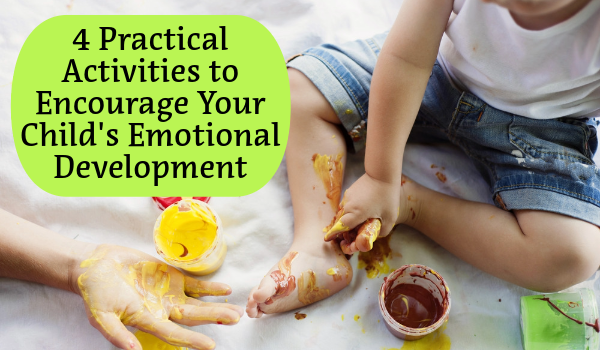
Every parent desires to see their child succeed in life and develop strong emotional intelligence. Emotional development in early childhood establishes the foundation for resilience, empathy, and social competence. Actively engaging with your little one through practical activities can nurture their emotional growth and guide them in understanding and managing their emotions. Here are four meaningful activities that can foster emotional growth.
1. Role-Playing Games
Role-playing games are a fantastic way for children to express their feelings and explore different scenarios. Encouraging your young learner to take on various roles can help them understand diverse perspectives and emotions. According to Zero to Three, a parental guide website, a three-year-old’s brain is up to twice as active as an adult’s brain. With such a receptive and curious mind, role-playing activities for young children can enhance their empathy, problem-solving skills, and overall emotional awareness. Whether pretending to be a teacher, doctor, or family member, these imaginative activities help little ones better grasp social interactions and build emotional intelligence.
2. Emotion Charades
Emotion charades is another effective activity to teach your preschooler to recognize and articulate feelings. By acting out different emotions and guessing them, you can help them learn to distinguish various emotional states both in themselves and others. This fun and interactive game can help build emotional vocabulary, teaching words for emotions such as joy, frustration, or sadness. Emotion charades also promote empathy, as children begin to understand how others may feel in different situations.
3. Mindful Breathing Exercises
Mindful breathing exercises teach the invaluable skill of self-regulation. Introducing your preschooler to simple breathing techniques, such as deep belly breaths or counting breaths, can help them manage stress and regain calmness in emotionally challenging situations. Regular practice of mindfulness not only enhances emotional development but also improves attention and focus. These activities for young children can be especially helpful during moments of anxiety, frustration, or excitement.
4. Art and Creative Expression
Engaging in art and creative activities provides a fantastic outlet for little ones to express their emotions without words. Drawing, painting, and crafting can be an excellent way for young children to explore their feelings and work through emotional experiences. They might create abstract art when feeling confused or use colors to represent their moods. These creative activities for young children encourage emotional expression and can serve as a conversation starter, allowing them to explain their artwork and connect it to their emotions.
Fostering emotional development at a young age is as crucial as nurturing physical and cognitive growth. Engaging in activities like role-playing, emotion charades, mindful breathing, and art can impart essential emotional skills that serve them throughout their lives. By actively participating in your child’s emotional journey, you can help them build a strong foundation for understanding and managing their emotions effectively.

